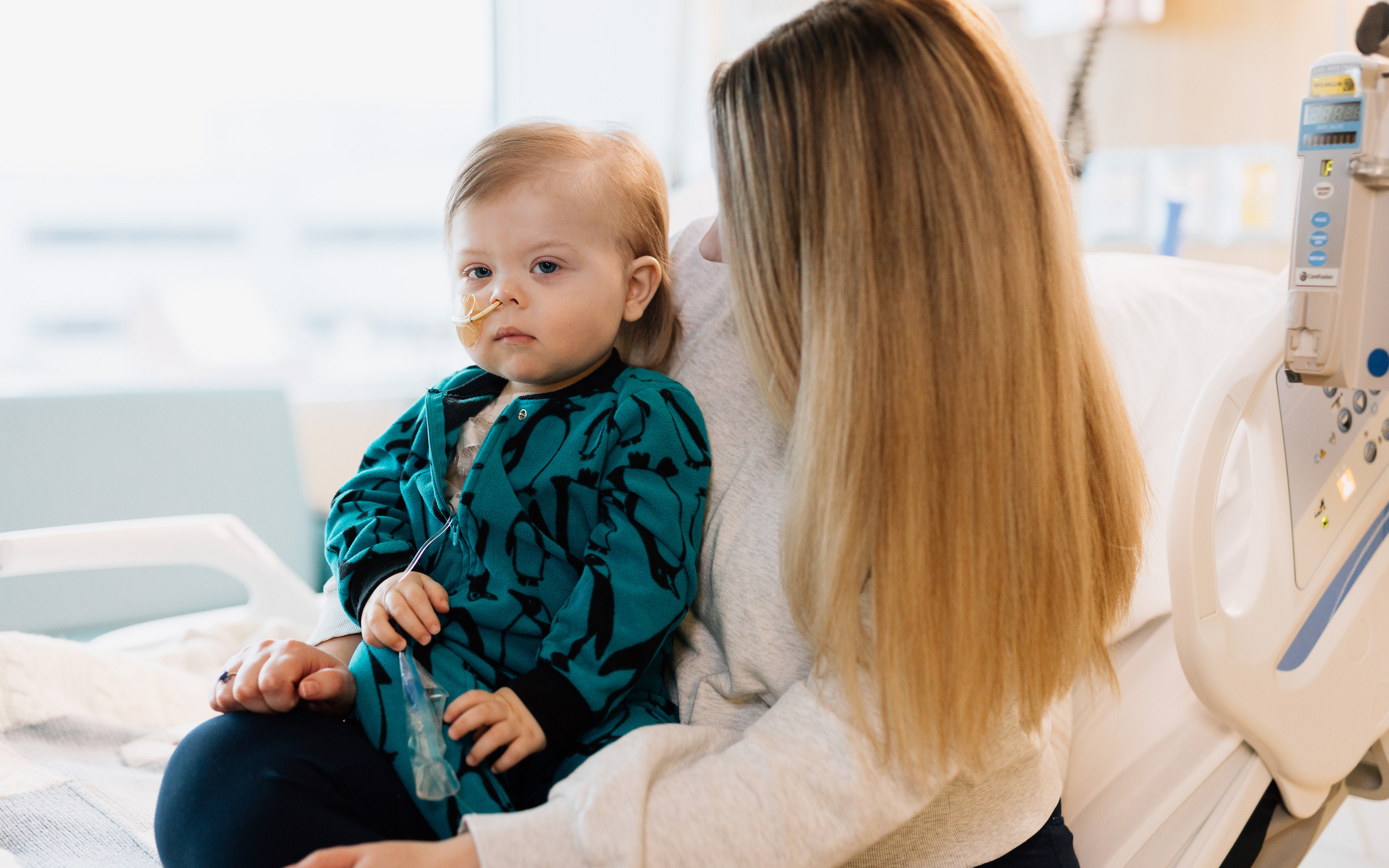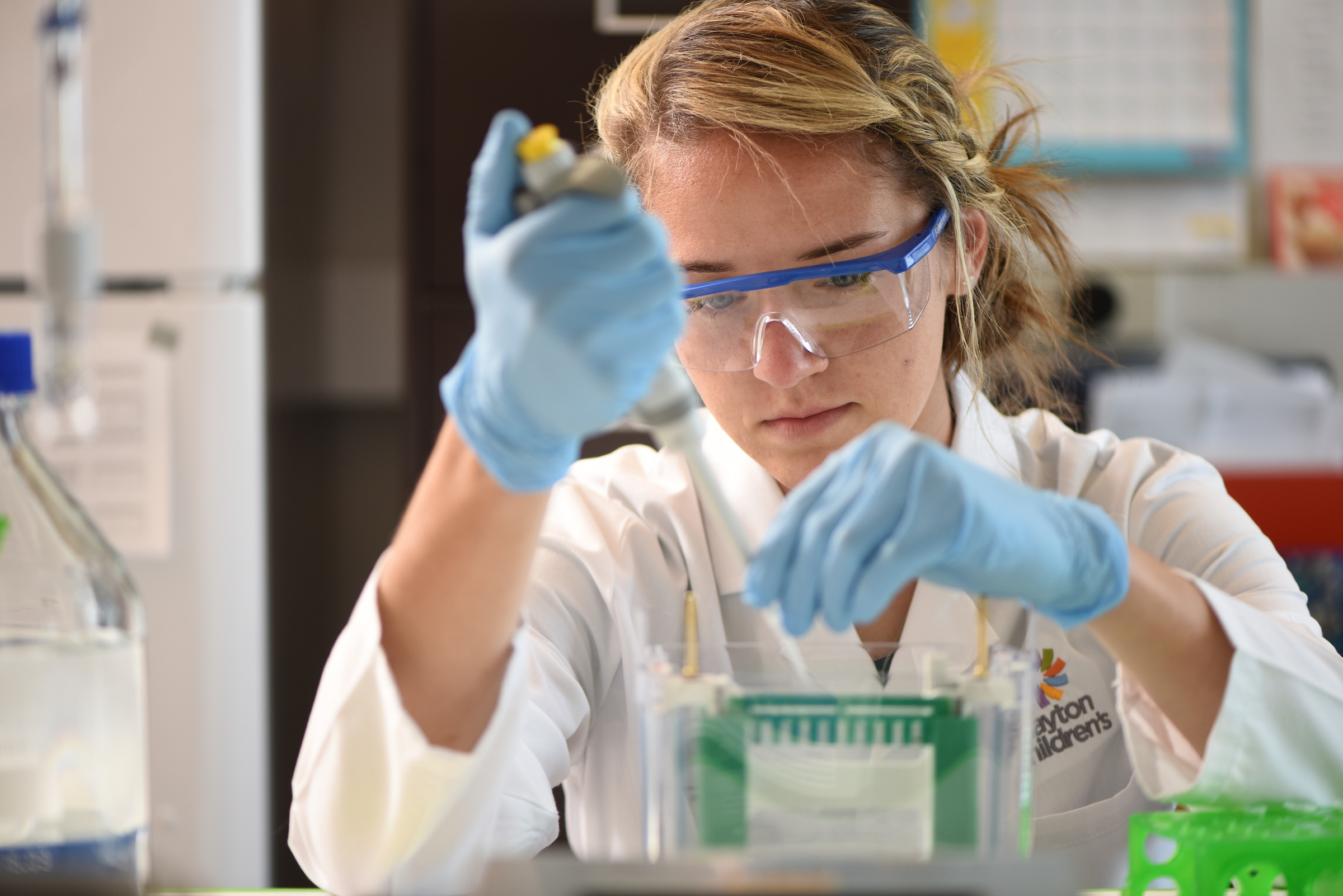cancer and blood diseases research
Dayton Children’s is improving outcomes for children with cancer and blood disorders through research, innovation, and collaboration.


advancing treatments through pediatric research
Sixty years ago, children diagnosed with leukemia had only a slim chance of survival. Today, thanks to decades of research and collaboration, the survival rate for childhood leukemia is more than 95 percent. Similar progress has been made in conditions like hemophilia, where children can now expect long, active lives with proper care.
Clinical research continues to drive these remarkable advances. At Dayton Children’s, we participate in a wide range of clinical trials designed to evaluate new therapies, improve existing treatments, and reduce long-term side effects. These studies are available to eligible patients through national networks and hospital partnerships.
By taking part in pediatric research, families not only help their own child—but also contribute to discoveries that will shape care for countless children in the future.
our cancer research partners
Dayton Children’s offers many clinical research studies for children with cancer at any given time. These are offered in partnership with other institutions, including those listed below. To learn more about cancer research at Dayton Children’s, please call clinical research coordinator at 937-641-5314.
Dayton Children’s is part of the Children’s Oncology Group (COG), the world’s largest organization devoted exclusively to pediatric cancer research. Our partnership with COG allows Dayton Children’s to offer our patients the same research trials that are available at large academic medical centers. These types of trials evaluate the effectiveness and safety of therapies that have been previously tested. More than 250 hospitals worldwide participate in COG studies.
Phase I and II research studies test new drugs and typically are offered to patients whose cancer has returned or is in an advanced stage. Children from the Dayton region have rapid access to all Phase I and II clinical cancer trials at the Cincinnati Children’s Cancer and Blood Diseases Institute, thanks to our participation in the Advanced Cancer Therapies Network. Through this network, eligible patients start their clinical trial in Cincinnati. Once they reach the maintenance phase, they can receive their care close to home at Dayton Children’s. This arrangement reduces treatment delays and provides additional avenues for treatment.
Dayton Children’s partners with 16 leading pediatric brain cancer clinicians, researchers and institutions, including Children’s Hospital of Philadelphia and Stanford University, for cutting-edge scientific innovation and collaboration as part of the Children’s Brain Tumor Tissue Consortium.
Learn more about how Dayton Children’s is doing their part to cure pediatric brain cancer, visit The Living Biobank at Dayton Children’s.
blood diseases research
Dayton Children’s participates in clinical studies for sickle cell disease and hemophilia. Children who fit the selection criteria are invited to participate in these studies, some of which are initiated by the Centers for Disease Control and Prevention and others by our own team. The
Our Hemostasis and Thrombosis Center partners with pharmaceutical companies, the National Hemophilia Foundation and other organizations to conduct clinical research studies designed to better understand hemophilia and develop more effective therapies for children.
One of our current studies is evaluating the use of a hemophilia drug in preventing and treating bleeds in previously untreated patients. Another is looking at a drug that may allow patients to be infused less often. A third is investigating the possibility of giving factor replacement therapy subcutaneously (under the skin) rather than intravenously (through a catheter in the vein). One of our patients was the first in the United States to participate in this innovative Phase 1 study.
Dayton Children’s also participates in two research-based campaigns: Community Counts and My Life Our Future.
- Community Counts is a public monitoring program funded by the Centers for Disease Control’s Division of Blood Disorders. The aim of this study is to gather and share information about common health issues, medical complications and other specific challenges that affect people with bleeding disorders. Researchers use the data to further scientific discovery.
- My Life, Our Future is a national initiative whose goal is to genotype as many people with hemophilia as possible in the United States. The organization offers a free genotyping test to help patients understand the genetic cause of their condition. The organization uses test results to aid in research and future treatment development.
To learn more about any of these research efforts, please contact Sandy Hibner, MSN, RN, hematology research coordinator, at hibners@childrensdayton.org.
research & innovate with us
Together, we can transform the future of pediatric care. Whether through participating in research, collaborating on innovative programs, or supporting our mission, there are many ways to get involved.
